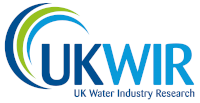UKWIR Publishes Research to put the Circular Economy at the Heart of the Water Sector
08/11/2021
The projects aim to kick-start a new and exciting direction of travel for the water industry, moving towards a sector which looks very different to now. A sector that embraces the circular economy.
Our managed water cycles are inherently circular. We take water from the rivers and aquifers, use that water and then return it, treated, to the environment.
A water sector based on Circular Economy principles is more than this.
It is underpinned by renewable energy, places water companies and citizens as stewards of the urban and natural water cycles and seeks to cycle resources and flows of capital at their highest value. It considers value in terms of both economic and non-economic measures, considering flows of value across all capitals.
A circular economy sector will take a systems approach to water management, be collaborative and cooperative and transparently report on successes and failures, highlighting areas for improvement.
To understand where the industry needs to go, the first step is understanding where it is. Companies already report on a wide range of metrics, showing the progress made towards maximising resources and achieving zero waste:
Companies achieved a 45% reduction in operational greenhouse gas emissions between 2012 and 2019
Over 85% of nutrient-rich biosolids are recycled to soil for agricultural use
Renewable energy generation increased by 300 gigawatt hours between 2012 and 2019
However, more work needs to be done to understand the industry’s starting point and develop metrics and evaluation frameworks to deliver circular, best value solutions. This requires holistic, systems level assessment through tools such as life cycle assessment, materials flow assessment, wider value and capitals assessment.
The research, undertaken by Jacobs, also examines the barriers to embracing a more circular approach to the sector – and identifies key enablers.
For example, existing business models do not incentivise the transition to a circular economy. This can be overcome by implementing an industry-wide six capitals and total value approach and developing common evaluation frameworks and risk assessments.
Another key example is the need to increase public awareness of the value of water in the environment for natural capital and ecosystems services. By communicating the regenerative, resource efficient solutions water companies can implement, and bringing customers closer to decision making, the sector could more quickly transition to a more circular way of working.
It is important all parts of the water sector, including the supply chain, its regulators and academia work together to help support this shift.
These reports are free to access – and we hope this encourages anyone who would like to support the transition to come forward and work with us.
Donna Rawlinson, UKWIR Programme Lead, and Capital Principal Project Manager at Northumbrian Water said:
“This important research helps present a clear picture of what a water industry based on the circular economy looks like, and how aligned the sector already is to core circular economy principles. Both projects give us a baseline to understand where we are and where there are new opportunities, together with any barriers we need to overcome. Our work emphasises the need to work in partnership across the sector to realise the social, economic and environmental benefits available”
Amanda Lake, technical lead for the project team, comprising Jacobs, Allied Waters and Brunel University said:
“It is inspiring to reflect on the examples of circular economy in water sectors across the world and the many opportunities we have. Transitioning to a circular economy sector allows us to unlock exciting nature based and resource recovery opportunities. This means recognising our role as water stewards in the biosphere, rethinking value and transforming to a more resilient, lower carbon water sector which is better for current and future customers.”
The reports can be found on UKWIR’s website – ukwir.org.uk and for more information contact mail@ukwir.org.uk
